
Simon Marks 4pm - 7pm
21 March 2023, 13:40 | Updated: 21 March 2023, 14:13
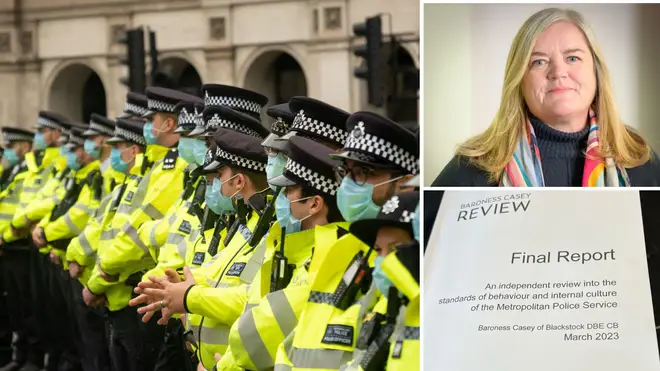
A major report has exposed widespread abuse, misconduct and a "laddish" culture within the Metropolitan Police force.
Shocking failings within the UK's biggest police force have been exposed in the long-awaited report by Baroness Casey.
The 363-page document shows widespread coercive behaviour by male officers, misogyny, homophobia and racism.
It also highlights the role of senior officers and the way in which it was easier to "shift the problem” than deal with deeply engrained issues affecting serving officers.
De-prioritising services affecting women and instead allowing armed response units to have an "unlimited budget", Baroness Casey labelled the prioritisation of armed arms of the Met despite austerity measures as deeply misogynistic, adding: "they didn't do that to any other area".
With multiple shocking incidents contained within the report, LBC takes a look at the most damning examples:
Read more: Rape may as well be legal in London, Met Police officer told Casey Review
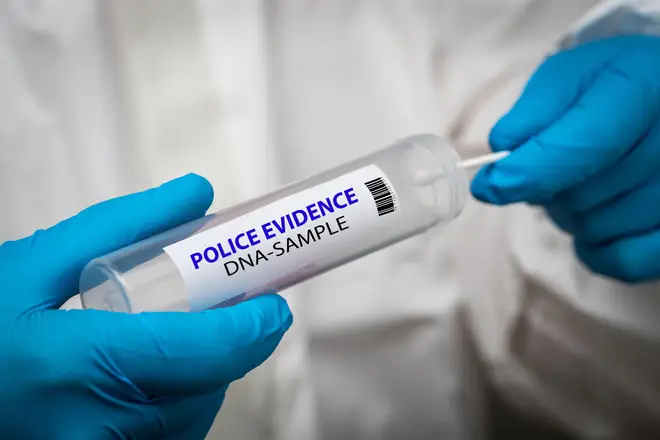
The report concludes the "de-prioritisation and de-specialisation" of areas including child protection, rape and serious sexual offences has increased the risk against women and children.
Officers regularly deal with "over-stuffed, dilapidated or broken" fridges and freezers containing evidence relating to rape and serious sexual offences, the report says.
One example cited three officers being needed to close freezers containing evidence samples because they were so full.
The anonymous officer, G, added the fridges used to store rape evidence were in "bad shape" and "packed" which regularly led to ruined evidence.
One instance saw sexual offences evidence - including swabs, blood samples and underwear, destroyed when one freezer broke down during the 2022 heatwave.
A lack of evidence meant the cases which hinged on these pieces of evidence were dropped, the review heard.
A “young” and “naïve” Met officer who formed a relationship with a colleague shortly after joining the force quickly became the victim of abuse, physically abused, stalked and raped by her partner.
Despite protests, she was forced to work with her abuser, with increasing levels of threats and violence used against her - including having her car tyre's slashed and being knocked unconscious before she was raped.
The victim said: “He smacked me round the face, I lost consciousness, he raped me. I had a black eye, a split lip."
Eventually ending the relationship and with reports filed initially by a colleague and then by the victim, the investigation into the officer was later dropped.
The officer in charge of the investigation turned out to be a friend of the abuser.
At one point, a senior officer even called the victim to say: “once this is all done and dusted, you’ll be fine to work on the same team as him won’t you?”
When she replied "no", he said “Oh ok, that causes us a problem.”
After being passed to six different investigating officers, within days of the murder of Sarah Everard by a serving Metropolitan Police Officer, she received an email from the DPS with one line, saying that they had decided to take no further action on her case.
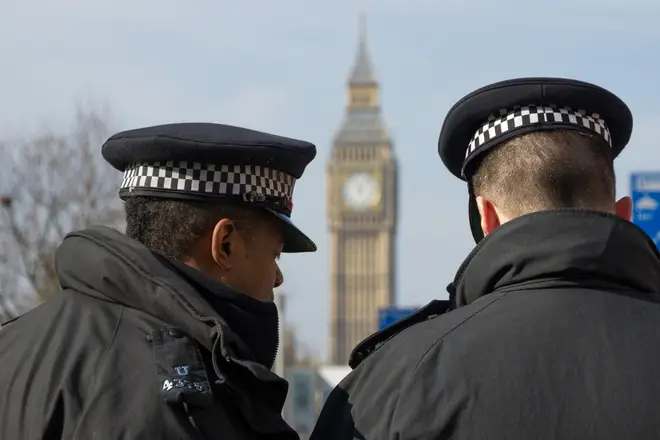
The report highlighted regular and widespread bullying across the force, labelling it institutionally racist, misogynistic and homophobic.
Citing countless examples of such incidents, the report outlined the case of one Sikh officer having his beard cut because a fellow officer thought it was funny.
Another incident saw an officer's turban put in a shoebox.
Another saw a Muslim officer discover bacon in his boots inside his locker. Despite being "horrified", the officer did not flag the abuse for fear of reprisals.
The report highlights striking instances of misogyny, with the case of a gay, female officer, reporting a male colleague for sexual harassment.
While alone on a night shift with the officer, he told her his “balls were cold” and requested that she “warm them up” for him.
The anonymous officer said her male colleague had a reputation for making other women cry, undermining them with comments about their policing abilities and bodies.
She said there was also an unofficial rule that female officers refused to work with him.
After reporting the incident, the officer would no longer speak to her while they were on duty together other than to shout at her in front of colleagues.
Making her position untenable, she tried to report him again, but a senior officer dismissed her claims, saying it “wasn’t the worst thing in the world”, that the officer had personally “experienced much worse things” and likely just "banter".

The report also highlights bold cases in which humiliating initiations were forced upon junior members of staff.
One female officer highlighted that hierarchies, bullying and humiliation was a regular occurrence among junior officers and "rife" in the specialist unit where she was employed.
Citing lengthy initiations, one such food-eating challenge saw women forced to eat whole cheesecakes until the point of vomiting.
She told of male officers being sexually assaulted in work showers as part of other initiations - a subject male colleagues openly joked about.
She added those who refused to participate were told they were "not to be part of the team".
The same black, female officer spoke of "grading" within the force - a practice that extended to members of the public as well as police.
Officers across countless areas of the force are described as “sex obsessed” by one particular officer known only as H.
She highlighted that young, female officers were “traded like cattle” between units based on amenability and physical appearance.
Following physical training, officer H was disciplined after taking a shower and was told by male colleagues her hair looked as though it had be shoved in an “electricity socket”.
The report highlights a a rigid culture of how to dress and look, with WhatsApp groups regularly used to speculate and spread rumours about the sex lives of female officers.
H herself says she was sent to work with a male officer who was known to like young, black women.
She says he was an “awful character, committing lots of sackable offences” but seemed to be unsackable.
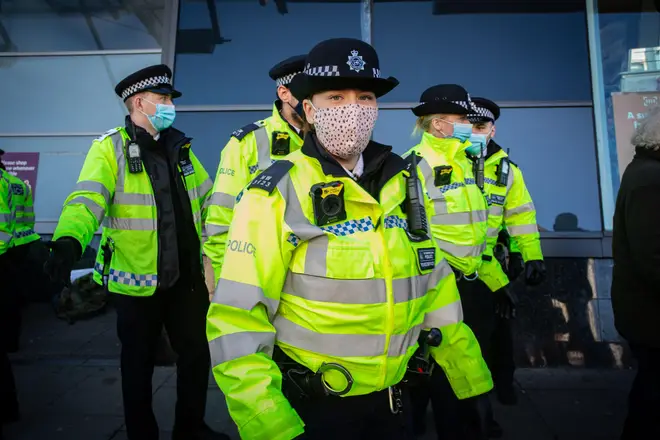
One gay officer cited in the report that officers referred to him as "pink and fluffy” as part of a "laddish" and homophobic culture within the Met.
Met slang for aspects of policing deemed stereotypically female and "nurturing", officers labelled the operational side of policing more of a masculine role.
“Back when I was on response team, when you heard an LGBT matter come out on the radio, you'd hear a collective groan. People don't want to attend those calls,” said the officer.
"I know that acquiescing is the wrong thing to do but for the sake of my own mental health and my own career, I stay silent."
In February last year, discriminatory WhatsApp messages exchanged by officers at Charring Cross police station emerged.
Despite a subsequent internal campaign entitled 'Not In My Met' encourage staff to speak out about discrimination, one officer told of how colleagues were encouraged to delete messages during a meeting about that very campaign.
Officers were told to "look carefully" at their WhatsApps and Facebook messages, according to the anonymous officer, with officers told: "they're coming for everyone now, protect yourselves".
There were also codewords used to help Met officers get away with such abuse.
Officers in the Met's specialist firearms command unit MO19 are said to have been warned what to do if a WhatsApp ot Telegram groups had been "compromised" i.e. a complaint maid about content including messages.
The report says a member of the unit was briefed to type the word LANDSLIDE into the group chat.
This prompt would cause members to immediately leave the group, delete all chat contents and create a new group - thus simply restarting the cycle of behaviour.
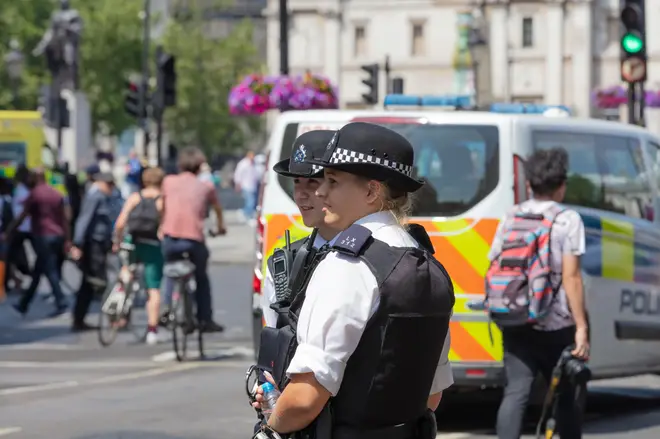
The report highlights the case of one officer who repeatedly entered "inappropriate relationships" with the victims of abuse.
Initially striking up a relationship with a victim of domestic abuse, stalking and false accusations of harassment, the officer "hugged" the woman following one particular welfare visit.
Regularly contacting her from his personal phone, the report states the officer could be seen "capitalising on her specific vulnerabilities" including "abuse trauma".
Encouraging she share information with him, she later discovered that none of the evidence had been recorded by the officer.
He cut contact with her when he was then put under investigation regarding his relationship with another victim.
When he made contact with her again, having resigned from the force before his hearing for Gross Misconduct, it was clear that he had been using police systems to find out information about her and her ex-partner, despite being on restricted duties whilst under investigation.
Reporting his behaviour to the DPS, the buck was repeatedly passed.
Although they have now recorded M's case and assessed it at Gross Misconduct, the Met is not planning to hold a hearing, as he was already charged with Gross Misconduct once with regards to the other vulnerable victim.
The case of Child Q - a black schoolgirl who was strip searched by two Met officers at school while on her period - first hit headlines last year, highlighting racial inequality.
The report cites the case of a black boy who told a professional outside the police that he wanted help in leaving a gang and would carry a knife for protection.
The child was later assaulted by an adult, with the professional contacting the police to report the assault, hand in the knife and help in out of the gang.
However, an entirely different unit attended the scene and instead arrested the boy.
"We completely lost him, he totally disengaged", the review was told.
The report also sites the case of Child Q as but one example of racial bias and disproportionality in intimate searches, adding weight to widespread claims of "adultification".
Such claims within the report note that "adultification" would see black children labelled a treated and treated as adults, thus justifying a greater use of force or intrusion.